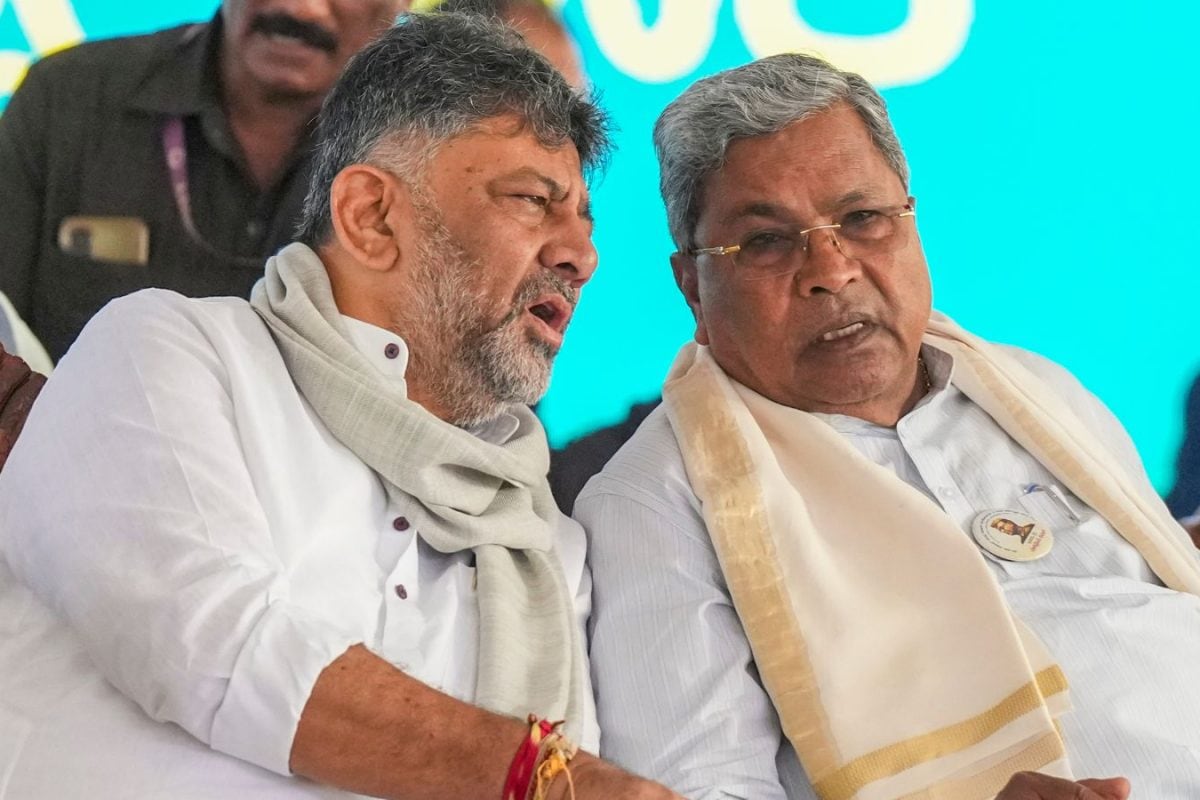

In Karnataka, recent weeks have been rife with speculation regarding a potential change in leadership within the state's Congress government. While rumblings of discontent have surfaced, the Congress party has officially denied any immediate plans to replace Chief Minister Siddaramaiah. This comes amidst statements from various MLAs pushing for DK Shivakumar to be the Chief Minister.
Congress General Secretary Randeep Surjewala has dismissed the talks as mere "figments of imagination" and asserted that the BJP is spreading these rumors to destabilize the government and derail its welfare guarantees. He clarified that if any MLA has an issue, it should be raised within the party and the government. Surjewala also emphasized that both Chief Minister Siddaramaiah and Deputy Chief Minister DK Shivakumar have confirmed that the state has enough funds for development. Congress President Mallikarjun Kharge has stated that any decision regarding the Chief Minister's post lies solely with the party high command.
Despite the Congress party's attempts to project unity, the undercurrents of internal dissatisfaction cannot be ignored. Some MLAs have openly expressed their concerns about the government's performance, adding fuel to the fire of leadership change speculations. One Congress MLA, Iqbal Hussain, claimed that a significant number of party legislators support DK Shivakumar for the Chief Minister's position, further intensifying the situation.
Meanwhile, Chief Minister Siddaramaiah has asserted that his government will remain "as solid as a rock" for the next five years, dismissing any rumors of discord with Deputy CM DK Shivakumar. Displaying a united front, Siddaramaiah publicly held Shivakumar's hand to show unity and dispel any notions of a rift between them.
The Congress party's challenges in holding on to states are not unique to Karnataka. Across the country, the party has faced difficulties in maintaining its governance in various states, often due to internal conflicts, defections, or inability to effectively counter the opposition's strategies. Several factors contribute to this struggle, including a perceived lack of strong central leadership, factionalism within state units, and failure to adapt to changing political dynamics.
The Congress party aims to retain the space it gained in the recent Lok Sabha polls and has drawn up a list of issues on which it aims to build public opinion. Under the major thrust of highlighting the attack on the Constitution and disrespect for Dr Ambedkar, the issues identified political, economic, and foreign affairs. These include caste census, opposition to the One-Nation-One-Election plan and amendments to the Election Commission rules, rekindling the debate to revisit the Temples of Worship Act of 1991, the denial of political space to the opposition, the dilution of financial support for MNREGA, inadequate MSP for farmers, the promotion of oligarchies, demands for clarity on relations with China, and recent attacks on minorities in Bangladesh.
In light of these challenges, the Congress party must address its internal issues, strengthen its organizational structure, and develop effective strategies to connect with the electorate. Only then can the party hope to reverse its declining fortunes and regain its position as a dominant force in Indian politics.